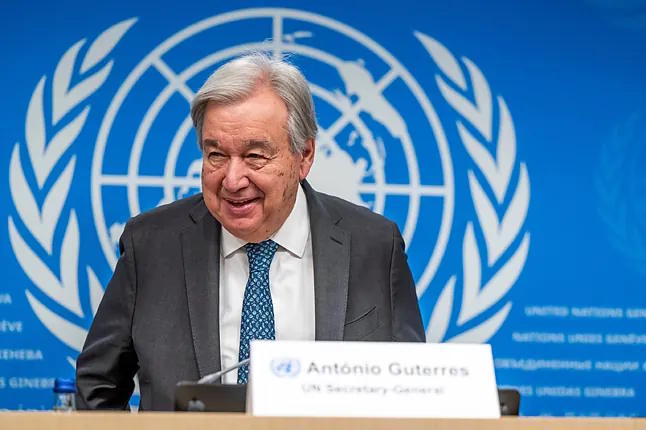UN Secretary-General António Guterres has warned that the increase in temperatures above the "ceiling" of 1.5 degrees set by the Paris Agreement is already "inevitable," in light of the commitments presented by 62 of the 197 countries that signed the historic agreement a decade ago and on the eve of COP30 in Belém (Brazil).
"The plans received so far imply a 10% reduction in CO2 emissions, when a 60% reduction would be necessary to stay on track for the 1.5-degree target," Guterres stated in an interview with The Guardian and the Brazilian portal Sumaúma. "It is essential to change direction as soon as possible."
"The truth is that we have failed to prevent exceeding the 1.5-degree limit in the coming years," reiterated the UN Secretary-General. "Exceeding that limit will have devastating consequences, as warned by scientists about tipping points. We do not want to see the Amazon turned into a savanna, but there is a real risk if we do not achieve a drastic reduction in emissions as soon as possible."
The World Meteorological Organization confirmed that 2024 was the warmest year ever recorded, with a global temperature increase of 1.55 degrees compared to the pre-industrial era. However, surpassing the 1.5-degree mark must be sustained and within the context of the decade to consider the limit broken.
The UN Secretary-General reiterated his call to the international community, even amid a critical moment for multilateralism. The United States, the second-largest global emitter of CO2, has withdrawn from the Paris Agreement under President Donald Trump's decision. China has announced a weak commitment to reduce its emissions from 7% to 10% by 2035. The European Union has weakened its "green deal" with the initial commitment to reduce between 62% and 72.5% in this decade.
Overall, only a third of the 197 countries have submitted their Nationally Determined Contributions (NDCs) on time for the UN's "synthesis report." Dozens of countries are expected to present their updated plans during COP30.
Guterres stated that he will use the climate summit to address the controversy created by the recent approval of oil exploration in Amapá, at the mouth of the Amazon, with Brazilian President Luiz Inácio Lula da Silva. Brazil has broken its record for oil and natural gas production this year (five million barrels per day) and aims to become the fifth-largest global exporter by 2030.
The UN Secretary-General called for a greater role for civil society and indigenous peoples at climate summits, "the best guardians of nature." Guterres acknowledged the growing power of lobbyists: "And we already know what lobbyists want: to increase their profits at the expense of humanity."
"We have seen the renewable energy revolution, and we must accelerate that transition because we will not be able to exploit all the oil and gas we have discovered if we want to reduce emissions," Guterres warned. "The alternative is a pitched battle where a privileged elite will be able to protect themselves while disasters spread, and the planet is progressively destroyed."
